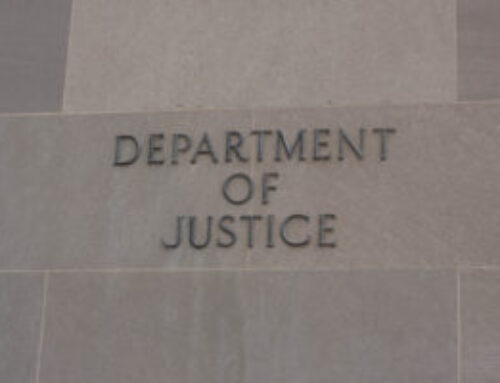Last month, the Fairfax County Retirement System shared that they will be putting $70 million of their $6.8 billion fund into two crypto yield farming funds. In other words, pension money that allows teachers, firefighters, and police officers to retire will be invested into volatile digital tokens known as yield-farming projects.
Yield-farming projects offer yields that are significantly higher than those available in bond markets – high-risk, high-reward, is the thinking. But there are few of the investor protections found in traditional finance. The protocols and coins earned are subject to extreme volatility, and even so-called rug pulls when developers abandon a project and make off with investors’ funds. There is no Federal Deposit Insurance Corporation protecting these funds.
In October 2021, one of Quebec’s largest pension funds — the Caisse de Depot et Placement du Québec — invested $150 million into the crypto-lending company called the Celsius Network. When Celsius went bankrupt over the summer, the pension fund experienced a precipitous drop in its value and was forced to write off its investment. Interestingly, the fund’s investment manager refused to concede that the investment was a mistake, merely calling it “too soon.”
Unfortunately, this is unlikely to be the only time that a pension fund loses money on a risky crypto bet. But we have tools at our disposal to mitigate harm.
The government has certain levers it can pull to penalize investments that are luring in pension funds with the promise of wild returns, only to tank the retirement savings of the people who need it most. Most states have a version of the False Claims Act that mirrors the federal law, which allows an insider with information about the abuse of public funds to bring that intelligence to the government for a financial reward. Many of the state versions cover any company that lies in order to get public pension money–in other words, stealing from the pensions is stealing from the state.
Applying this to the crypto sphere, any crypto company that misrepresents earnings, assets, asset backing, insurance, how stable that Stablecoin really is, or any of a host of other things that too many crypto companies have been caught lying about, could be liable under a relevant state’s False Claims Act law. If a whistleblower knew, for example, that a crypto company’s stated returns were based on nothing more than wishful thinking, that whistleblower could file a complaint on the state’s behalf. If found liable, that crypto company would be liable for up to treble damages (that is, three times the amount they cost the state) plus penalties.
If a pension fund decided to go all in on crypto, and that crypto company disappeared tomorrow, the fund would go to zero and the fund would be left with nothing to pay that firefighter’s benefits. The funds aren’t going to do that of course, but even if they devoted 10% of their assets to crypto which then disappeared, that 10% drop would be meaningful for the people depending on that money to retire.
Some will say that pension funds could lose out on the “high reward” part of these yield farming operations if they don’t take these risky bets. But I’ll respond with this: there has yet to be a crypto company that has shown itself to be a safe investment. Even the so-called “safe” companies in the space – for instance, Coinbase as a publicly traded company – have wildly fluctuating prices and are far riskier investments than what you would normally see in retirement accounts. The actual crypto companies are even riskier and have outsized losses (and occasional gains). Additionally, the ability for anonymous people behind these projects to abscond with money – making collectability for the government difficult, even should there be a False Claims Act case – should make pension funds think twice before they invest in a yield-farming project.
Sadly, this is not the first time pension funds have gotten too curious about risky investments. A past generation of pension funds chased big risky bets in the residential mortgage market. After the mortgage crisis, those big bets led to a series of False Claims Act settlements with the banks that had lied to the funds about the security of their investments. Let’s hope this current round of crypto-curious investment managers does not end with quite the same level of devastating loss. But if it does, the False Claims Act will be there to help the government recoup those funds.
In Florida, Governor Ron DeSantis has said he wants to block pension funds from doing diligence on a company’s environmental, social, and governance (ESG) milestones; for instance, scrutinizing a company’s efforts to diversify from fossil fuels or promote worker equity before investing. But pragmatically speaking, these crypto projects have proven a far greater risk to pension funds than a company implementing environmental or pro-worker practices. Given the crypto industry’s willingness to admit that it’s all a big Ponzi scheme with no underlying asset value, it’s hard to justify any pension fund investing in one.
If you have information about fraud in pension funds or cryptocurrency, please contact us.
Read More
Cryptocurrency Fraud
Financial and Investment Fraud
State and Local False Claims Act
Contact Us Confidentially
Read Crypto projects are toying with public funds. The False Claims Act will be a powerful tool in holding them to account at constantinecannon.com






Leave A Comment